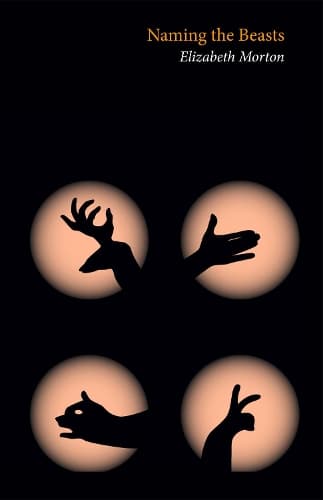Review: Naming the Beasts
Reviewed by Erica Stretton
Heat, wildness, suburbia, and feral beasts crowd the pages of Elizabeth Morton’s Naming the Beasts. Each narrator—whether it be wolf, cow, hunter, or bird—takes part in a visceral world, slick with body fluids, boiling weather, urban disgust and rural mercilessness.
The poems roll through a wide range of locations and subjects, staring hard at climate change – “the fire alarms / are birds, black and wailing, the shrieked bodies of eucalyptus” – and human nature – “We are a half-life of a story about hands that hold tools, beating earth / and its creatures into function,” among many other topics.
This book requires effort to access: the urgency and beauty shown through the deep metaphorical language is at once beguiling but grasping the whole meaning of each poem takes time, to sit with and absorb the many layers. Overall, the collection watches lives roll on through a broken and burning world: it aches with the effort of recording beauty and primeval instinct, hunting for hope amongst the chaos.
Here is a selection from Fire:
We mow where the grass had burned, rake the rotting windfall
from the plums. Today the sky is orange from the bushfires.
Yesterday my uncle said it’s a storm in a teacup,
like a teacup has spilled over the Tasman Sea and the fire alarms
are birds, black and wailing, the shrieked bodies of eucalyptus.
Reviewed by: Erica Stretton
